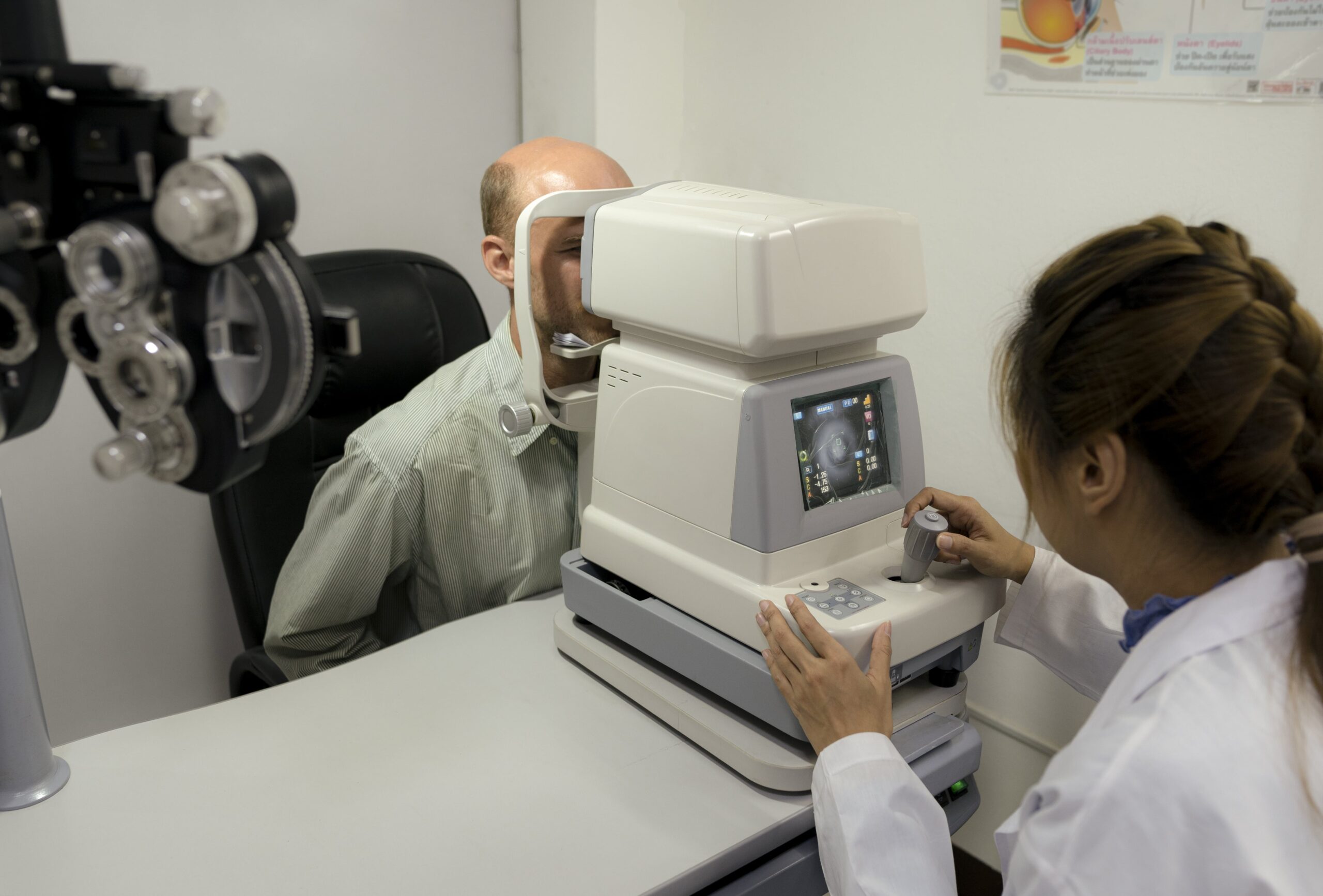During an eye exam, pupil dilation is done on purpose to make the pupils larger so the eye doctor can thoroughly inspect the retina and optic nerve. To treat and prevent eye disorders that may result in vision loss, the examination is essential. Pupil dilation is the process by which your iris’s central opening enlarges to allow in more light. Pupils can normally dilate in response to a range of stimuli or to let in more light. An eye exam will involve the use of eye drops by a doctor to enlarge a patient’s pupils. The eye is a lovely organ and the only location in the body where a medical professional can observe the optic nerve, a portion of the central nervous system. Examining the optic nerve is an essential component of a thorough eye examination.
A dilated or undilated eye exam gives an ophthalmologist valuable information. First, let’s examine the undilated exam.
The Exam for Undilated Eyes
Your eyes must stay undilated for the purpose of a vision test and maybe a measurement to establish an eyeglass prescription, which is among the initial steps of a thorough eye checkup.
Before dilatation, eye physicians will also measure how your pupils react to light. This can be crucial in figuring out how well each eye’s visual pathways are functioning.
Next, the ophthalmologist might employ a slit lamp, a type of special microscope, to Look at your frontal lobes. This entails examining the eyelids, the iris, or the circular portion of your eye; the cornea, or the clear “window” in front of your eye; and the lens, which is a significant component that allows your eye to focus.
Additionally, a gonioscopy examination is performed, which enables the physician to use a special mirrored lens to assess the drainage angle in your eye. The angle between the cornea and iris, which were both previously discussed, is the “angle” that is being discussed. Your ophthalmologist can see most, if not all, of the drainage system in your eye when the angle is open. Only a fraction of the drainage angle is visible when the angle is narrow, especially if None of the acute angle-closure events is apparent.
Formal visual field testing involves examining your peripheral vision, or side vision, as part of a glaucoma evaluation. This examination should ideally not cause dilation of the pupils’ eyes.
The Dilation of the Eye
When the pupil is not dilated, the vision from the back of the eye is restricted. An ophthalmologist can see your optic nerve and macula when your pupil is small, but the field of vision is restricted. Pupil dilation is required to view the entire retina. By putting dilated drops in the eyes, this is accomplished.
How much time does it take for the eyes to enlarge completely?
Depending on the patient’s reaction to the drug, it usually takes 15 to 30 minutes after applying the drops to get fully dilated pupils.
What Is the Duration of Eye Dilation?
It usually takes four to six hours for pupils to dilate normally after an eye checkup. Long-lasting ocular dilatation may occur in some people.
What Is the Feeling of Dilated Eyes?
Because the pupil is larger and more light enters your eyes after they have been dilated, you will be more sensitive to light; therefore, wear sunglasses, or your ophthalmologist may give you some disposable ones. Additionally, you can have fuzzy vision, especially if you’re trying to read. Some individuals report experiencing a “tightening” or other change in their eyelids. If you are familiar with your eyesight or if this is your first time getting your eyes dilated or are too inebriated to drive following dilatation, have a friend or companion take you home after the test. Although there used to be eye drops that could stop dilatation, these are no longer in stock, so you’ll need to wait the full four to six hours for the drops to wear off.
Which Conditions Can a Dilated Eye Exam Diagnose?
An undilated pupil can see the optic nerve, but a dilated pupil is necessary for the best possible view. This is critical for the identification of optic nerve disorders, including glaucoma. Find out what to anticipate during an eye checkup for glaucoma.
Degeneration of the Macula
Diagnoses are made for age-related macular degeneration (AMD) and diabetic retinopathy, two extremely prevalent retinal conditions. It is observed by looking through a dilated pupil at the retina. Find out what to anticipate during an eye checkup for macular degeneration.
Other Requirements
Pupil dilation is necessary for a wide range of disorders besides glaucoma and macular degeneration. A few of these include the identification of an ocular tumor or a retinal tear or detachment. Lastly, a dilated eye helps to fully observe a cataract or clouding of the lens.
How Often Is a Comprehensive Dilated Eye Exam Necessary?
The National Eye Institute advises that everyone receive a thorough, dilated eye exam every year beginning at age 60.
The suggested age for an African American to receive a dilated eye exam is 40 years old due to the higher glaucoma risk.
The National Eye Institute advises a dilated eye exam if glaucoma runs in your family.
For patients with diabetes, the American Academy of Ophthalmology has particular guidelines.
Within five years of diagnosis, it is advised that individuals with Type 1 diabetes undergo their first eye examination.
When type 2 diabetes is diagnosed, the patient should have an eye examination. It is advised that diabetic women who are thinking about getting pregnant get checked out either before or early in the first trimester.
Conclusion
Pupil dilation is essential to a thorough eye examination that helps determine the health of your optic nerve and retina. It also plays a major role in treating and preventing disorders of the eyes that may cause vision loss. Contact your Brightside eye care specialist today for more information about booking your exam.



